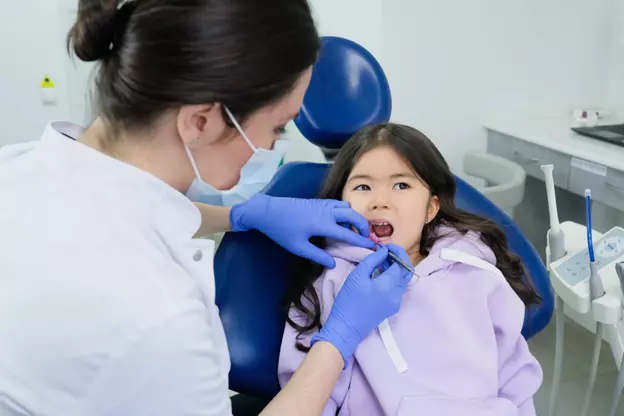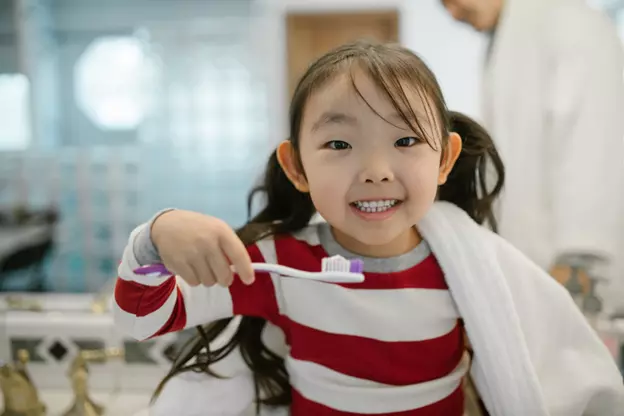Jaws of Growth: Understanding and Treating Shark Teeth in Pediatric Dentistry.
Every parent knows that their kid’s oral health is as important as the overall health and wellness of the kid.
That’s why investing in pediatric dentistry is crucial and critical at an early age.
Some problems and conditions may arise, like tooth cavities and decay, but at the earliest age, the first challenge you will face as a parent is shark teeth.
These are the first teeth that come out after all their baby teeth have been subdued.
So, what are shark teeth, and why do they happen? And how can you and your pediatrician handle this special dental event?
Understanding Shark Teeth: What Are They?
Shark teeth are used in pediatric dentistry to describe a phenomenon in which a child’s permanent teeth begin to develop behind their baby teeth before their naturally exfoliating (fallen out) teeth.
This process often results in a two-way row of teeth, similar to the teeth arrangement in a shark’s mouth.
While this may appear to be a cause for concern, shark teeth in kids are, in fact, quite common in children’s dental development.
Lets Check it: Wisdom Teeth Removal: Important Things to Know?
Why Do Shark Teeth Occur?
Shark teeth in children are caused by several things, including:
Delayed Teeth Replacement
It is widespread for your baby’s teeth to fall out for permanent teeth to rise. In some unique cases, the roots of the baby teeth may take longer to grow again, resulting in a delay in the standard tooth replacement process.
Rapid Growth
Permanent teeth can develop at different rates depending on the individual child.
Some kids grow permanent teeth faster than others, which can result in the development of permanent teeth early before the loss of baby teeth. Read about Recognizing Social Anxiety in Children: Is Your Child Quiet or Anxious?
Genetic Factors
Genetic factors may also affect why shark teeth happen. For example, if a parent or family member had shark teeth when they were young, there is an increased likelihood that their descendants will have shark teeth. Let’s Explore Understanding the Signs of Teething in Babies.
Managing Shark Teeth: Tips for Parents and Dentists
Regular Dental Checkups
Early detection is the key to successful shark tooth management.
By performing regular dental exams beginning with the eruption of your baby’s first tooth, dentists can track your child’s dental growth and address any problems as soon as possible.

Observation
Sometimes shark teeth will go away independently when baby teeth eventually emerge.
If your kid’s dental health isn’t at risk, your pediatric dentist Frisco might suggest waiting and seeing what happens.
Extraction
If the shark teeth are making you uncomfortable, hurting your kid’s bite, or making it hard for them to stay in place, your dentist might suggest removing them.
This way, you’ll have more room for your permanent teeth to grow in.
Orthodontic Intervention
An orthodontist may be required in more intricate cases where there is a significant misalignment of the teeth.
An orthodontist can direct the permanent teeth to their correct positions, resulting in a healthy and attractive smile.
Final Thoughts – Understanding and Treating Shark Teeth in Pediatric Dentistry
Shark teeth may sound scary, but they’re shared among pediatric dentists. Knowing what causes shark teeth and taking the right steps can help keep your kid’s teeth healthy.
Following your kid’s dental checkups, keeping an eye out on their growing teeth, and, if necessary, early detection can make all the difference in maintaining shark teeth in check and helping your kid have a healthy smile.
If you’re very worried about your kid’s teeth or you think they might have shark teeth, get in touch with a pediatric dentist immediately to discuss treatment plans for your kid. A happy, confident smile starts with good dental care.

